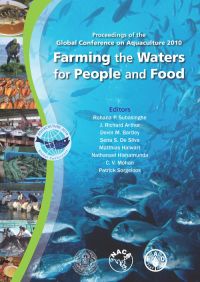World Aquaculture Adelaide: Special session on regional cooperation for improved biosecurity
24 March 2015 | 21064 views | Australia, Health and Biosecurity, Shrimp
Effective health management is a shared responsibility that requires a coordinated approach from all countries, particularly with regards to emergent pathogens such as “EMS” (acute hepatopancreatic necrosis disease of shrimp), where containment requires a rapid response from the international community. There are good reasons to believe that wide and increasing inbreeding is also a significant factor in the epidemics frequently observed in the aquaculture industry.
A special session on Regional Cooperation for Improved Biosecurity was held at the World Aquaculture Adelaide 2014 conference, from 7-11 June. The session discussed i) regional cooperation in biosecurity, ii) dealing with emerging diseases, focussing on acute hepatopancreatic necrosis disease, and iii) domestication programmes and their implications for genetic diversity, disease susceptibility and resistance. NACA would like to thank the Australian Centre for International Agricultural Research for providing a travel grant that allowed the speakers to attend the conference.
Creative Commons Attribution.
